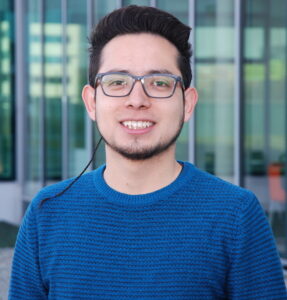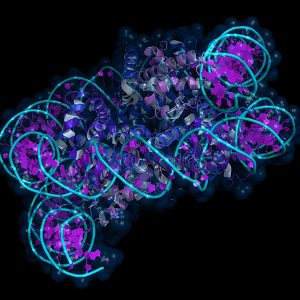Low Input Epigenomics
11–17 May 2024
Wellcome Genome Campus, UK
Learn the latest approaches to study chromatin biology at the gene and genome-wide levels in rare cell populations.
Summary
Our understanding of eukaryotic genomes has benefitted tremendously from whole genome sequencing projects. However, we are only beginning to systematically understand how the interplay of DNA, proteins and its biochemical modifications (i.e. chromatin) can influence global processes which control gene expression, mRNA splicing and DNA replication or repair in normal development and disease.
This hands-on practical course provides training in experimental and computational approaches that can be used to mechanically dissect important aspects of chromatin biology at the gene and genome-wide levels in rare cell populations.
Participants will receive intensive wet laboratory and computational training using various state-of-the-art methods that require fewer than 1000 cells input to bridge the gap between the standard bulk epigenomic approaches, often requiring inputs of millions of cells, and emerging single-cell techniques. This course will cover the wet lab and computational aspects of:
- Cleavage under targets and release using nucleases (CUT&RUN) to profile histone marks and transcription factor binding.
- Low-C to map the 3D structure of the genome and interactions between regulatory elements and gene promoters.
- Omni-ATAC to assess chromatin accessibility.
- Computational methods using various pipelines to analyse low-input genomic data and visualisation.
Target audience
Senior PhD students, early career postdoctoral scientists, or junior faculty members who wish to interrogate epigenomic features on a low input scale.
Programme
This 7 day course will cover the following techniques:
- (CUT&RUN) to profile histone marks and transcription factor binding.
- Low-C to map the 3D structure of the genome
- Omni-ATAC to assess chromatin accessibility.
- End-point analysis using qPCR and Tape station techniques
- Computational analysis of low input gene level and genome-wide data to determine the interplay of DNA, proteins and chromatin modifications in biological processes.
These sessions will be supplemented with pre-course training on Linux and UNIX basics, informal tutorials, and guest lectures from the instructors and distinguished invited speakers. Participants will also have the opportunity to discuss their research interests and present aspects of their work relevant to the course.
Learning Outcomes:
After attending the course, participants can expect to be able to:
- Perform CUT&RUN, Omni-ATAC, and Low-C techniques, including experimental design, endpoint analysis and validation (qPCR, TapeStation).
- Apply genome sequencing methods for low input genomic analysis
- Perform end-to-end analysis of low input genome sequence data from raw sequence to identifying loci of biological importance.
- Explore how low input genomic methods can be applied in development and disease research
Instructors and speakers
Training Team

Kip Arlidge
Canadore College, Canada

Kinjal Desai
The Hospital for Sick Children Research Institute and Cancer and Stem Cell Biology, Canada

Noelia Diaz
Institute of Marine Sciences (ICM-CSIC), Spain

Noura Maziak
MRC-LMS London, UK

Fabian Groll
The Institute of Cancer Research, UK

Benjamin Hernandez Rodriguez
Max Planck Institute for Molecular Biomedicine, Germany
How to apply
Pre-requisites
Basic molecular biology laboratory skills are required. Some familiarity with genomic data analysis is advantageous but not required.
How to Apply
Please click the Apply button above to begin the online application process. Places are limited and will be awarded on merit. If you have any problems with the online application process, please contact us.
Please note: Applications must be supported by a recommendation from a scientific or clinical sponsor (e.g. supervisor, line manager or head of department). A request for a supporting statement will be sent to your nominated sponsor automatically during the application process. Applicants must ensure that their sponsor provides this supporting statement by the application deadline. Applications without a supporting statement cannot be considered.
Travel visas
Successful applicants will be provided with a support letter for their visa application, if required.
Please visit the following websites for further information on visiting the UK:
Cost
| Cost | Accommodation / meals | |
| *Course fee | £1195 | This is a residential course and the fee includes all accommodation and meals. |
*The course fee is subsidised by Wellcome Connecting Science and applies to non-commercial applicants. Please contact us for the commercial fee.
Bursaries
Limited bursaries are available (up to 50% reduction on the course fee) and are awarded on merit. If you would like to apply for a bursary, please complete the bursary section of the online application form.
Where there are many bursary applications, the selection committee may issue smaller amounts.
Bursaries can be applied for as part of the course application form. Applicants will be notified of a bursary award along with their place on the course, usually within one month of the application deadline. The decision of the selection committee is final.
Please note that both the applicant and sponsor are required to provide a justification for the bursary as part of the application.
Additional funding opportunities
Visit our support page for additional financial support currently available.
Accommodation services phishing scam – please be vigilant. More information.

